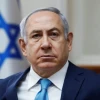Two of the world’s most diverse and influential cities—are now led by Muslim mayors whose journeys reflect both shared struggles and sharply different political paths.
Sadiq Khan, London’s long-serving mayor, and Zohran Mamdani, New York’s newly elected leader, embody the modern face of progressive urban politics: left-leaning, outspoken, and unafraid to challenge prejudice. Both men have faced Islamophobic abuse throughout their careers, yet they continue to champion inclusion and equality in the global spotlight.
Khan, who has governed Britain’s capital since 2016, was among the first to congratulate Mamdani on his victory. “New Yorkers have chosen hope over fear, unity over division,” he said, echoing the message that defined his own rise to office. His tenure, however, has not been without turmoil. Constantly attacked by conservative critics, Khan was once labelled a “stone-cold loser” by former U.S. President Donald Trump.
Mamdani, 34, a democratic socialist who triumphed over former governor Andrew Cuomo and Republican Curtis Sliwa, has endured similar hostility. Some detractors have branded him a “jihadist,” but he remains defiant. “I will never change who I am or the faith I’m proud of,” he declared during his campaign.
Both mayors have drawn criticism for their pro-Palestinian positions and faced calls to strengthen engagement with Jewish communities. Khan said it was “heartbreaking but not surprising” to see Mamdani subjected to the same kind of vitriol he has faced for years.
Their life stories, though, chart contrasting paths to power. Khan, 55, is the son of a Pakistani bus driver and a seamstress. Raised in public housing, he became a human rights lawyer and Labour MP before making history as London’s first Muslim mayor. Mamdani, by contrast, is the son of Ugandan-born academic Mahmood Mamdani and Indian filmmaker Mira Nair. He grew up in New York, working as a tenant organiser fighting evictions before stepping into politics.
Despite their different upbringings, both now confront the daunting realities of governing megacities of over eight million people—places grappling with rising crime, housing shortages, and spiralling living costs.
Analysts warn that Mamdani’s ambitious plans, including rent freezes and free childcare, could collide with the limits of his office. “The mayor of New York doesn’t have unlimited authority and will face strong opposition, including from the current president,” said Darren Reid, a U.S. politics expert at Coventry University.
Khan’s authority in London is broader. He oversees policing and transport while sharing control of housing and social services with local boroughs. His key achievements include expanding free school meals and freezing public transport fares. His controversial Ultra Low Emission Zone (ULEZ) policy—designed to tackle air pollution—sparked protests but ultimately strengthened his standing among environmentally conscious voters.
Political analyst Tony Travers observes that both men embody the promise and paradox of cosmopolitan leadership. “They lead dynamic, diverse metropolises that are surprisingly peaceful and almost embarrassingly successful,” he said.
For Khan and Mamdani, faith may be a common thread, but politics—and the cities they serve—will define how their stories unfold.

-1762539313.webp)
 Prev Post :
Prev Post :
